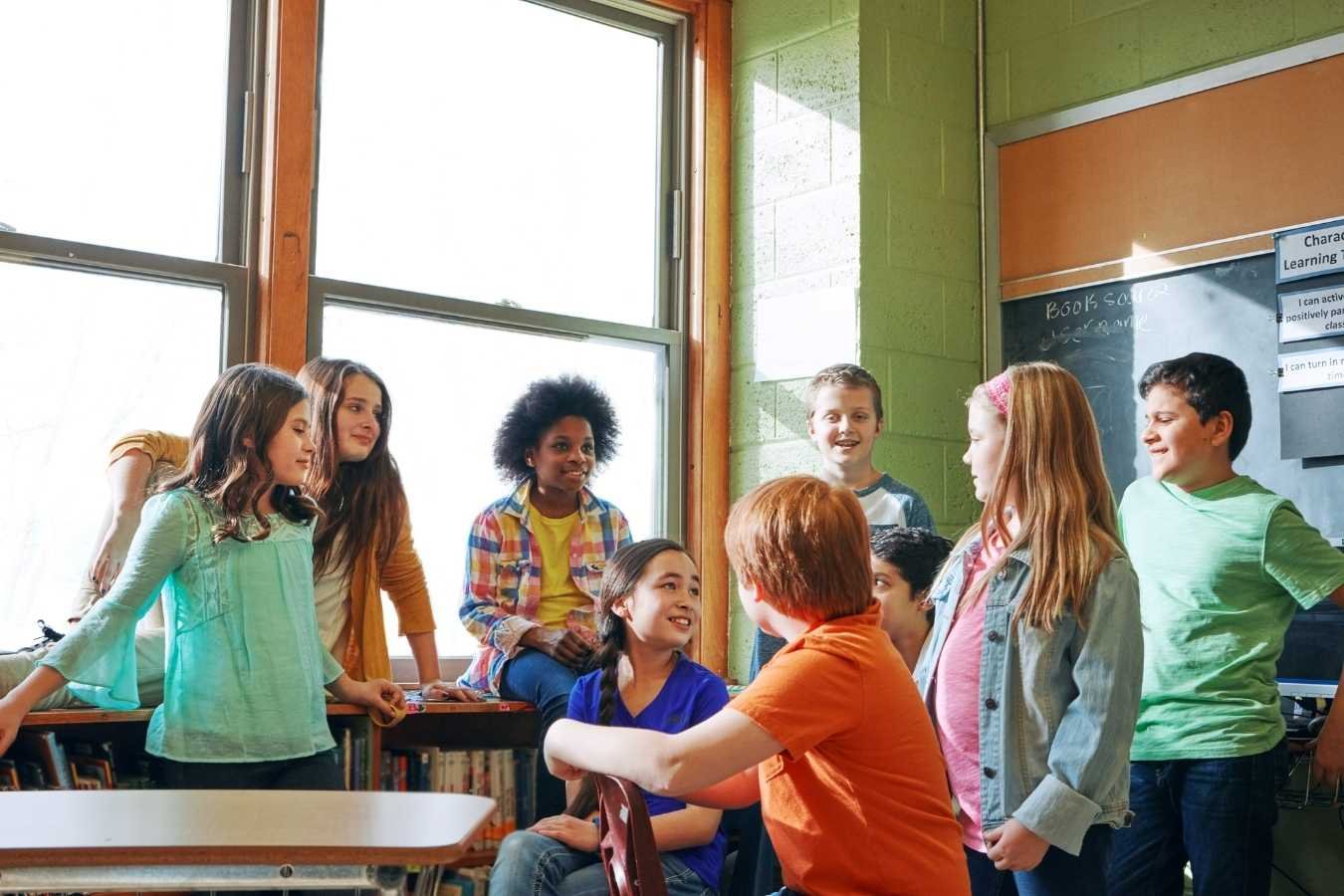Social-emotional learning (SEL) is gaining traction in educational systems worldwide, and India is no exception. As the nation continues to navigate the complexities of a rapidly changing world, understanding and implementing SEL in schools is crucial for fostering well-rounded individuals. This article delves into the fundamentals of social-emotional learning, its significance, and practical strategies for its integration into Indian educational contexts.
What is Social-Emotional Learning (SEL)?
Social-emotional learning encompasses the processes through which individuals, particularly children, develop the skills to understand and manage emotions, set positive goals, show empathy for others, establish positive relationships, and make responsible decisions. The five core competencies of social-emotional learning include:
- Self-awareness: Recognizing one’s emotions and thoughts and understanding how they influence behavior.
- Self-management: Regulating emotions, thoughts, and behaviors in different situations.
- Social awareness: Understanding and empathizing with others, including those from diverse backgrounds and cultures.
- Relationship skills: Building and maintaining healthy relationships through effective communication and teamwork.
- Responsible decision-making: Making ethical, constructive choices about personal and social behavior.
Incorporating these skills into educational settings helps prepare students not just academically but also emotionally and socially.
The Importance of Social-Emotional Learning (SEL) in India
1. Enhancing Academic Performance
Research indicates a strong correlation between SEL and academic achievement. Students who engage in social-emotional learning tend to have higher grades, better attendance, and improved attitudes toward school. In the Indian context, where academic pressure can be overwhelming, integrating SEL can ease stress and enhance students’ ability to focus on their studies. The Indian education system often emphasizes rote learning and exam scores, which can lead to high levels of stress and anxiety among students. By incorporating SEL, schools can create a more balanced approach that values emotional well-being alongside academic success.
2. Building Resilience

The challenges faced by students today, such as academic stress, family issues, and peer pressure, necessitate a strong foundation of resilience. Social-emotional education equips students with the tools to cope with setbacks and challenges. For instance, teaching students how to manage stress through mindfulness techniques or encouraging them to set realistic academic goals can enhance their resilience. By fostering resilience, SEL helps students bounce back from difficulties and remain engaged in their learning.
3. Promoting Mental Health
Mental health issues among youth are rising in India, with increasing rates of anxiety, depression, and suicidal thoughts. Social-emotional learning (SEL) can play a pivotal role in addressing these concerns. By fostering emotional awareness and healthy coping mechanisms, SEL can help reduce anxiety and depression among students. Schools that prioritize SEL create a supportive environment where students feel safe to express their feelings and seek help when needed. Initiatives such as peer support groups, counseling services, and mental health awareness programs can further complement SEL efforts.
4. Encouraging Empathy and Inclusivity
In a diverse nation like India, cultivating empathy and understanding among students is vital. Social-emotional learning (SEL) promotes social awareness and encourages students to appreciate different perspectives. By incorporating discussions about cultural diversity and social justice into the curriculum, educators can foster an environment of inclusivity. This understanding can lead to more inclusive classrooms where every student feels valued and respected. Schools that promote empathy help students develop strong interpersonal relationships, leading to a more harmonious school environment.
5. Reducing Behavioural Issues
Behavioral problems among students can disrupt the learning process and affect the overall school atmosphere. Social-emotional education provides students with the tools to manage their emotions and interactions effectively. For example, teaching conflict resolution skills and encouraging positive communication can help reduce instances of bullying and aggression in schools. When students understand how to express their emotions constructively and handle conflicts peacefully, they contribute to a more positive and supportive school culture.
Strategies for Implementing Social-Emotional Learning (SEL) in Indian Schools
1. Professional Development for Educators

For successful implementation of social-emotional learning (SEL), educators must be well-equipped. Professional development programs focusing on SEL strategies can empower teachers to integrate these practices into their classrooms. Workshops, training sessions, and continuous support can enable educators to understand the importance of SEL and how to effectively foster it in their teaching. Schools should also encourage collaboration among teachers to share best practices and strategies for implementing SEL.
2. Curriculum Integration
Integrating social-emotional learning (SEL) into the existing curriculum can be achieved through various subjects. For example, literature classes can encourage discussions about characters’ emotions, while science classes can focus on teamwork and collaboration during projects. By embedding SEL into academic content, schools can reinforce these skills naturally. Additionally, incorporating real-life scenarios and case studies into lessons can help students apply SEL concepts in practical situations, enhancing their learning experience.
3. Creating a Supportive Environment
A positive school climate is essential for the success of social-emotional learning (SEL). Schools should foster an environment where students feel safe, respected, and valued. This can be achieved through clear behavior expectations, anti-bullying policies, and open communication channels for students to voice their concerns. Creating safe spaces for students to express their feelings, whether through designated counseling rooms or peer support groups, can also contribute to a supportive school environment.
4. Parental Involvement
Engaging parents in the process of social-emotional learning (SEL) enhances its effectiveness. Schools can conduct workshops and seminars for parents to understand the principles of SEL and how they can reinforce these values at home. By working together, educators and parents can create a consistent approach to promoting emotional and social skills. Schools can also provide resources and materials for parents to facilitate conversations about emotions and social interactions at home.
5. Regular Assessment and Feedback
To gauge the effectiveness of social-emotional learning initiatives, schools should implement regular assessments and feedback mechanisms. Surveys, focus groups, and informal check-ins can help educators understand the impact of their SEL programs and make necessary adjustments. Moreover, involving students in the evaluation process can provide valuable insights into their perceptions of SEL and its relevance to their lives.
6. Integration of Technology

Incorporating technology into social-emotional learning (SEL) initiatives can enhance engagement and accessibility. Online platforms and apps that focus on emotional literacy, mindfulness, and conflict resolution can be valuable tools for both students and teachers. For instance, virtual workshops and interactive webinars can provide additional support and resources for implementing SEL in the classroom. Technology can also facilitate communication between students, teachers, and parents, making it easier to share progress and resources.
The Future of Social-Emotional Learning (SEL) in India
As India continues to evolve, the need for social-emotional learning (SEL) becomes increasingly evident. Policymakers, educators, and parents must collaborate to prioritize SEL in schools across the nation. Initiatives by organizations such as the National Council of Educational Research and Training (NCERT) and various non-governmental organizations (NGOs) can provide valuable frameworks and resources for implementing SEL effectively. By fostering social-emotional skills, we can equip the next generation with the tools they need to navigate the complexities of life and contribute positively to society.
In conclusion, social-emotional education is not just an educational trend; it is a vital component of holistic development. By recognizing its importance and actively integrating SEL into educational practices, India can pave the way for a future where students are not only academically proficient but also emotionally intelligent and socially responsible. Embracing social-emotional learning will lead to healthier individuals and a more compassionate society, ultimately shaping a brighter future for all.
Investing in social-emotional learning is an investment in the future of our children and, consequently, our nation. The comprehensive approach of SEL will ensure that Indian students are equipped with the skills necessary to thrive in an increasingly complex world, fostering not just academic success, but emotional resilience, empathy, and a strong sense of community.
Did you find this article helpful? Visit more of our blogs! Business Viewpoint Magazine











